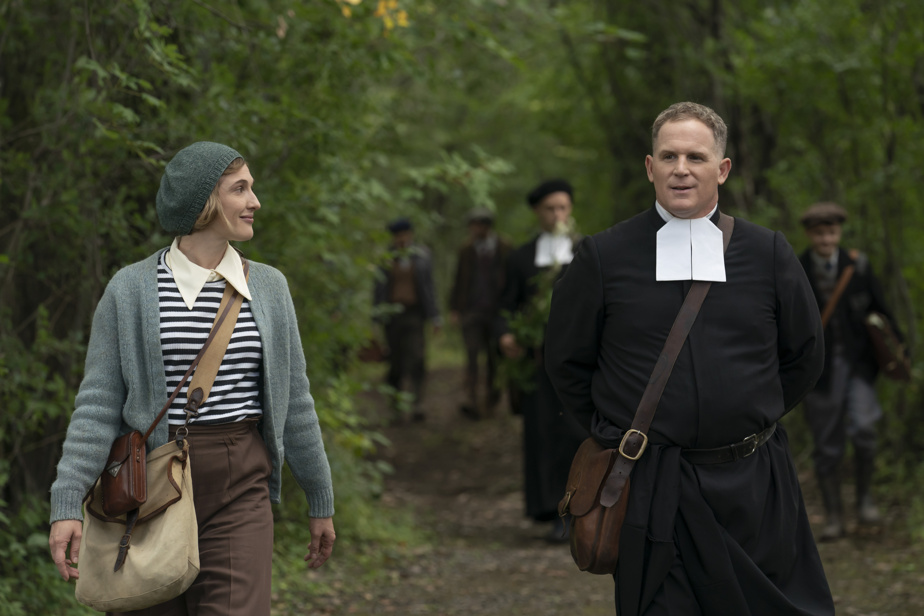Filmmaker Lyne Charlebois (finally) makes a return to cinema with Tell me why these things are so beautiful, where she delicately and respectfully brings to life the relationship between Brother Marie-Victorin and botanist Marcelle Gauvreau.
Sixteen years after Borderline, where she illustrated in a bold, hard-hitting and raw way the loves of the heroine imagined by Marie-Sissi Labrèche, Lyne Charlebois goes to the other end of the sexuality spectrum. At the opposite end of the spectrum from Kiki, embodied with generosity and abandon by Isabelle Blais in 2008, the characters in Tell Me Why These Things Are So Beautiful live very singular loves in communion with nature and in the love of God.
“It was not ordinary what you did there, what we did there! It was the last veil or the penultimate veil that fell between us. […] You woke up a woman who was still sleeping a little, and I will never be able to forget that I felt against me the rapid beating of all your intimate flesh. My friend ! My friend ! That we must truly love each other to respect each other in front of this extreme border! », writes Marie-Victorin, from Cuba in February 1942, in one of the last letters addressed to Marcelle Gauvreau (Letters on human sexuality, presented by Yves Gingras and Craig Moyes, Boréal, 2024).
In fact, the bond that united the man of the Church, author of Flore laurentienne and founder of the Montreal Botanical Garden, to the young girl from a good family, who was his student, his protégé and his assistant, came from the ordinary. Driven by great curiosity, thirsty for new knowledge, the two botanists engaged in research and experiments on human sexuality. In the hundreds of letters they exchanged on this subject, they spoke of anatomy, hygiene, orgasms, menstruation in a detailed, sophisticated, elegant, even poetic manner.
Thus Marie-Victorin and Marcelle Gauvreau address each other with deference and devotion like romantic characters, echoing the mythical medieval lovers Abelard and Héloïse.
The passionate scientists that Alexandre Goyette and Mylène Mackay play, however, are not paper beings. The first infuses the religious with candor, good nature and quiet strength, and the second, grace, will and skin-deep sensuality in the young botanist. Joining them are Francis Ducharme as a severe brother Léon, Rachel Graton as the envious Rita, Marcelle’s friend, Vincent Graton as Marcelle’s understanding father, and Sylvie Moreau as truculent mother Marie-des-Anges, sister of Marie-Victorin.
Wishing to deliver her own reflections on the nature of love from yesterday to today and to break the rigid shackles of the classic biographical film, Lyne Charlebois interweaves the first story into a second relating to the filming of a film about love. by Marie-Victorin and Marcelle Gauvreau. While they talk with the director (Marianne Farley) and the other actors of Conrad and Marcelle, Antoine (Goyette) and Roxane (Mackay) reflect on the brief affair they had.
If the necessity of the mise en abyme remains debatable, the back and forth between past and present, between reality and fiction, is done fluidly, sometimes bringing comical breaks in tone, sometimes subtle shifts where the stories echo one another.
Beyond the tribute to Brother Marie-Victorin and Marcelle Gauvreau, a great woman who remained too long in the shadow of the great man, Lyne Charlebois testifies to the love that the two eminent scientists had for the Quebec territory. Thanks to the images of André Dufour and Christine Simard, the director displays the Laurentian flora in its dazzling beauty in order to remind us of all its fragility.




